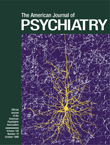Depression and Anxiety Symptoms in Women at High Risk for Breast Cancer: Pilot Study of a Group Intervention
Abstract
OBJECTIVE: The psycho-oncology literature to date contains only one outcome study based on a group model for high-risk relatives of breast cancer patients. The authors set out to study the effects of group intervention in high-risk relatives of breast cancer patients. METHOD: Thirty-three high-risk relatives of breast cancer patients participated in a six-session, 12-hour group intervention model that consisted of educational and psychosocial components. RESULTS: There was a significant reduction of depression symptoms as reported on the Center for Epidemiologic Studies Depression Scale. Similarly, there was a significant reduction of anxiety symptoms as reported on the State-Trait Anxiety Inventory state scale. CONCLUSIONS: In this pilot study, the investigators found the group intervention model effective at reducing symptoms of depression and reactive (not chronic) anxiety.



